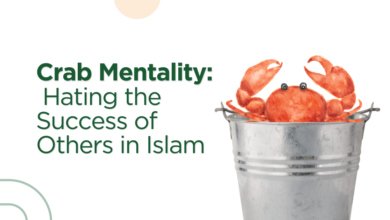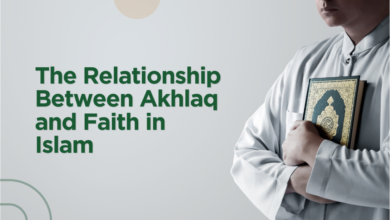Muslim Lifestyle
-

Islamic Relief Through Extension of Debt Repayment Period
Talking about debt, sometimes you immediately feel tense, right? Especially when talking about late payments. The impression is immediately negative. As if the person who is in arrears must be negligent… or even considered to have no intention of paying. In fact, it is not always like that. Because there are people who are really having a hard time. They…
Read More » -

The Meaning of Tasamuh (Tolerance) Between Investors and Business Partners
Divergent interests, expectations and management styles frequently cause conflict in the relationship between investors and operational partners in todays intricate business environment. Islam provides an ethical compass in this regard through the concept of tasamuh, a value based on mutual respect tolerance and generosity. Relationships between people are highly valued in Islamic business ethics as a manifestation of faith in…
Read More » -

Crab Mentality: Hating the Success of Others in Islam
Its normal in day-to-day life to feel uncomfortable when we see someone who is more prosperous, successful or admired than we are. These responses frequently happen unconsciously particularly when the successful individual is a close friend sibling or fellow Muslim. This response is referred to as crab mentality a way of thinking that stems from jealousy and opposition to the…
Read More » -

The Important Wealth Planning in Sharia Compliant
Feel Your Salary Increase, But Your Heart Doesn’t Feel Ease? Have you ever felt that your salary has increased, bonuses have been paid, but your heart is still restless? Saving money is getting harder, bills never end, and life feels even narrower? Maybe it’s not about how much wealth we have but how we view and manage it. In Islam,…
Read More » -

How to Make Side Hustles for Hajj
Are you an employee with a fixed salary, but have a big dream to go on the hajj? Don’t worry, you are not alone. Many of us have a strong desire to go to the Holy Land, but the reality of our bank accounts often makes our hearts shrink. A monthly salary is enough to live on, but to save…
Read More » -

The Urgency of Emergency Fund Before Investing
In the field of personal finance, the fundamental need of setting up an emergency fund is frequently eclipsed by the appeal of investing. Even though investments have the potential to generate large returns they are not always risk-free and do not provide the immediate response needed in unexpected financial emergencies. Thus making an emergency fund a top priority is not…
Read More » -

Halal Wealth and Salvation in the World and the Hereafter
In life, human beings are inseparable from the need for wealth. However, in Islam, wealth is not merely a means to meet worldly needs; it is a test and a trust for which every person will be held accountable. It is essential for every Muslim to ensure that their earnings come from halal sources, so that their life is blessed…
Read More » -

A Muslim’s Attitude in the Disruptive Era
Rapid changes in every area including education society the economy and technology characterize the disruptive era. These shifts require a Muslim to maintain a strong commitment to Islamic values while adopting a flexible productive mindset. Increasing Piety and Faith A Muslim must first be spiritually intelligent. Muslims need to strengthen their faith and piety in the face of digital temptations…
Read More » -

The Relationship Between Akhlaq and Faith in Islam
As a flawless religion Islam stresses the value of akhlaq (morality) in addition to regulating aspects of belief (aqidah) and practicals (sharia). A Muslims personality is shaped by two primary factors that are intricately linked: akhlaq and faith. Faith will not be complete without good akhlaq and akhlaq will not mean anything if it is not strong. The relationship between…
Read More »


